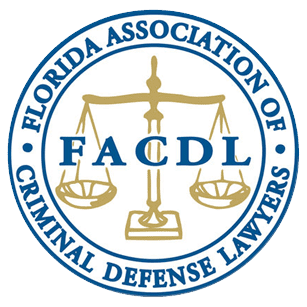Wandering onto someone else’s property that may seem to be a minor legal infringement, so you might be surprised to find out that there are serious consequences for criminal trespass under Florida law. This offense may be charged as a misdemeanor or felony depending on the circumstances, which means your sentence could include imprisonment and fines. A criminal conviction on your record could also impact your future. However, with the help of a Sarasota criminal trespass lawyer, you improve your chances of a favorable outcome.
Even though your situation may look bleak after an arrest, you do have rights and the chance to defend yourself in court. A property crimes lawyer at Erika Valcarcel, Criminal Defense Lawyer, P.A. can help you make the most of these opportunities. With a background in prosecution and defense, Erika Valcarcel has considerable experience on both sides of a criminal case. Please call (941) 363-7900 or use our online contact form to learn more about how a Sarasota criminal trespass lawyer can assist.
Overview of Criminal Trespass Under Florida Law
Florida’s statute on trespassing describes the crime as willfully entering or remaining on real property without permission from the owner. A secondary definition includes returning to the property after receiving a warning from the owner to leave. For purposes of trespass charges, it isn’t necessary that the owner install fencing or post a sign warning others to stay off the property.
Beyond this basic description, the specifics of the crime are based upon the type of property that you enter or remain upon.
Four Types of Criminal Trespassing
Florida law on criminal trespass includes multiple versions of the crime, including:
- Structure: You could be charged with trespassing on a structure if you enter or remain in a building of any kind, whether it’s a temporary or permanent building.
- Conveyance: Trespass of a conveyance is entering or staying upon any type of motor vehicle without the consent of the owner or occupants. Automobiles, watercraft, railroad cars, trailers, aircraft, and recreational vehicles are included in the definition of conveyance; a bicycle is not.
- Property: You may also be arrested for trespassing if you enter or remain on any other type of property, aside from a structure or conveyance. The crime includes unenclosed land and outbuildings that are adjacent or connected to a dwelling, such as agricultural property.
- School Grounds: Trespassing upon school property, campus, or other facilities is a serious crime in Florida. Unlike other criminal trespass charges, your status on school grounds is a factor in the offense. The statutory definition only applies to individuals who don’t have any legitimate business or permission to be on school property, as well as students who have been suspended or expelled.
Intent in Criminal Trespass Cases
A prosecutor must present evidence that you willfully intended to enter the property without authorization, or you remained there after permission was withdrawn. When a property owner withdraws consent, it must be expressly communicated to you, so you have effective notice that you must leave.
Penalties for Criminal Trespassing
The default punishment for criminal trespassing depends upon which of the four types of the offense is charged.
First Degree Misdemeanor: If you’re accused of criminal trespass on property, the crime is the most serious form of misdemeanor. A conviction could lead a judge to sentence you to one-year imprisonment and a fine up to $1,000.
Second Degree Misdemeanor: All other forms of criminal trespass, including school grounds, structure, and conveyance, fall into this category. A conviction for a Second Degree Misdemeanor is punishable by up to 60 days incarceration and a maximum fine of $500.
Enhanced Felony Charges: Beyond the defaults, there are additional circumstances that could lead to enhanced charges under Florida’s criminal trespass laws. Any of the forms of criminal trespass are elevated to a Third Degree Felony if you’re armed with a deadly weapon during commission of the crime. Though this level of felony is the lowest, there are still severe consequences. A conviction could mean up to five years’ imprisonment and a fine up to $5,000.
Legal Help with Defending a Criminal Trespass Charge
Considering the harsh sanctions for a conviction, you can see the importance of retaining a Sarasota criminal trespass lawyer for your case. Legal assistance is essential during the prosecutor’s case-in-chief. As the state presents evidence in an attempt to prove the elements of criminal trespass, your lawyer can identify and expose weaknesses in the allegations. If the prosecutor cannot establish guilt beyond a reasonable doubt, the charges against you may be dismissed.
In addition, a criminal trespass lawyer can offer valuable support when it’s your turn to put on your defense. There are multiple options for defending against trespassing charges, including:
- You had the permission of the property owner to enter or remain;
- You lacked the requisite intent, possibly because you didn’t know you were trespassing;
- The property was open to the public;
- Emergency or urgent circumstances made it necessary for you to be upon the property;
- A sign warning about trespassing didn’t comply with the requirements under Florida law; or,
- The statute of limitations on trespassing, which is 1-3 years depending on the charge, has expired.
Discuss Your Case with an Experienced Sarasota Criminal Trespass Lawyer
If you’ve been charged with criminal trespass and want to know more about your legal options, please call Erika Valcarcel, Criminal Defense Lawyer, P.A. to schedule a free, confidential consultation with a criminal trespass attorney. You can reach our Sarasota office at (941) 363-7900 or go online to fill out our online contact form. Our team serves clients throughout Sarasota and Manatee Counties in all types of criminal matters, including criminal trespass and other property crimes.


